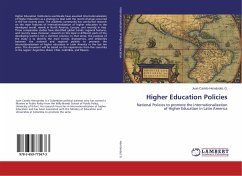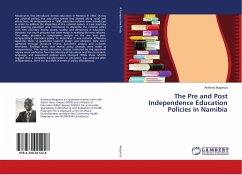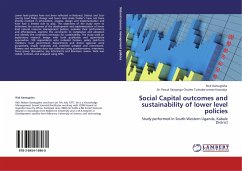Higher Education Institutions worldwide have assumed Internationalization of Higher Education as a strategy to deal with the recent changes occurred in the last twenty years. The academic community has conducted research on the main features of internationalization of higher education in the developed world, mainly in North America, Europe, and recently in Asia. These comparative studies have identified global trends, regional features, and country cases. However, research on this topic in different parts of the developing world is not a common practice. In that sense, the purpose of the study is to identify the main trends, divergences, and similarities between the national and regional policies to promote the internationalization of higher education in Latin America in the last ten years. The document will be based on the experiences from five countries in the region: Argentina, Brazil, Chile, Colombia, and Mexico.
Bitte wählen Sie Ihr Anliegen aus.
Rechnungen
Retourenschein anfordern
Bestellstatus
Storno








